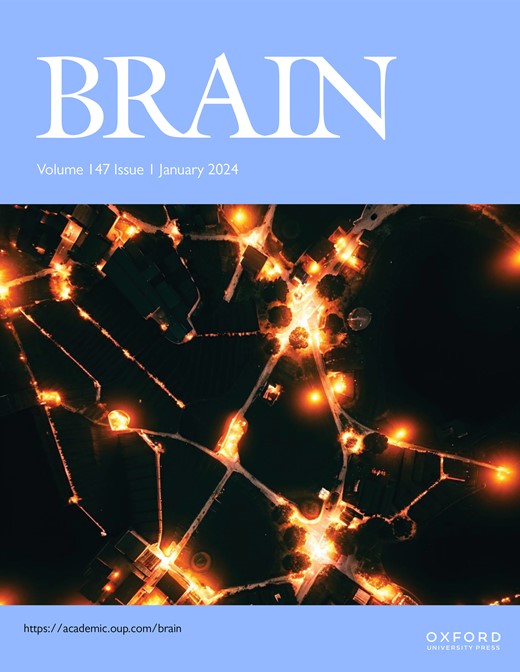Altered T-cell reactivity in the early stages of Alzheimer’s disease
IF 10.6
1区 医学
Q1 CLINICAL NEUROLOGY
引用次数: 0
Abstract
The adaptive immune system and neurodegenerative Alzheimer’s disease (AD) are intertwined in multiple ways. Recent studies have reported alterations of the adaptive immune system in early AD stages, such as preclinical AD and mild cognitive impairment (MCI) due to AD. However, the identity of specific antigenic targets and whether the respective response is beneficial or detrimental during disease progression are still open questions. Herein, we describe cross-sectional analyses of blood and cerebrospinal fluid from three different study populations covering early AD stages. We employed high-dimensional mass cytometry, single-cell RNA-sequencing, ex vivo T-cell secretome analysis, and antigen presentation assays to achieve a comprehensive characterization of adaptive immune cell populations. Our results show that subjects at the stage of asymptomatic, preclinical AD can mount a CD4+ T helper cell response towards β-amyloid peptide and display an early enrichment of CD8+ T effector memory cells re-expressing CD45RA (TEMRA cells) in CSF, combined with a less immunosuppressive gene signature of peripheral regulatory T-cells. Conversely, in MCI we observed increased frequencies of CD8+ TEMRA/effector cells in the periphery characterized by a pro-inflammatory gene expression profile, and generally decreased antigen responsiveness. Our results demonstrate the complexity of adaptive immune changes in early AD and suggest that it may be beneficial to promote specific CD4+ T-cell responses in the preclinical stage, while in MCI it may be important to therapeutically target CD8+ T-cell responses if these prove to be harmful.阿尔茨海默病早期t细胞反应性改变
适应性免疫系统和神经退行性阿尔茨海默病(AD)以多种方式交织在一起。最近的研究报道了适应性免疫系统在早期AD阶段的改变,如临床前AD和AD引起的轻度认知障碍(MCI)。然而,特异性抗原靶点的身份以及各自的反应在疾病进展过程中是有益还是有害仍然是一个悬而未决的问题。在此,我们描述了来自三个不同研究人群的血液和脑脊液的横断面分析,涵盖了早期阿尔茨海默病。我们采用高维细胞计数、单细胞rna测序、体外t细胞分泌组分析和抗原呈递分析来实现适应性免疫细胞群的全面表征。我们的研究结果表明,在无症状的临床前AD阶段,受试者可以对β-淀粉样蛋白肽产生CD4+ T辅助细胞反应,并在脑脊液中显示CD8+ T效应记忆细胞(TEMRA细胞)的早期富集,再表达CD45RA,同时外周调节性T细胞的免疫抑制基因信号较少。相反,在MCI中,我们观察到以促炎基因表达谱为特征的外周CD8+ TEMRA/效应细胞的频率增加,并且普遍降低抗原反应性。我们的研究结果证明了早期AD适应性免疫变化的复杂性,并提示在临床前阶段促进特异性CD4+ t细胞反应可能是有益的,而在MCI中,如果CD8+ t细胞反应被证明是有害的,那么靶向治疗可能是重要的。
本文章由计算机程序翻译,如有差异,请以英文原文为准。
求助全文
约1分钟内获得全文
求助全文
来源期刊

Brain
医学-临床神经学
CiteScore
20.30
自引率
4.10%
发文量
458
审稿时长
3-6 weeks
期刊介绍:
Brain, a journal focused on clinical neurology and translational neuroscience, has been publishing landmark papers since 1878. The journal aims to expand its scope by including studies that shed light on disease mechanisms and conducting innovative clinical trials for brain disorders. With a wide range of topics covered, the Editorial Board represents the international readership and diverse coverage of the journal. Accepted articles are promptly posted online, typically within a few weeks of acceptance. As of 2022, Brain holds an impressive impact factor of 14.5, according to the Journal Citation Reports.
 求助内容:
求助内容: 应助结果提醒方式:
应助结果提醒方式:


